
Shadows of Doubt is a must-play detective sim, with some rough edges barely registering among its ingenious design ideas.
Good lord, dear reader, what have I done? I’m just a few minutes into Shadows of Doubt, developer ColePowered Games’ detective sim, and I’ve made a ridiculous, rookie mistake. Having arrived at the door of an apartment of a person I’ve been told to investigate, I have the option of looking around for a key or finding a ventilation system so I can sneak in unseen. Impatient, I instead decide to crouch down and pick the lock.
Big mistake. Within seconds, a passer-by, who happened to appear in the hallway just as I entered the apartment, has spotted me. A big, red exclamation mark appears over his head to notify me of his suspicion. In the top left corner of the screen, a rising number indicates how much money I’ll be fined for trespassing if I’m caught.
Realising I don’t have much time, I comb the apartment for clues. It doesn’t take me long before I discover the body of the person I was tasked with finding. The poor fellow, one Abena Ba, lies crumpled up in the bathroom, his head positioned next to the toilet. There are bullet holes in the wall nearby. Looking around, I find fingerprints belonging to an intruder dotted here and there throughout the apartment. Looking on a calendar, I learn that the victim was due to meet someone in a nearby restaurant.
Before I can investigate further, there’s a bang at the door: an angry group of law enforcers stands outside, and there are mere seconds before I’m caught – or worse. Grabbing a plastic stool, I rush back to the bathroom, use the stool to reach a vent, and make my way out of the building, unseen.
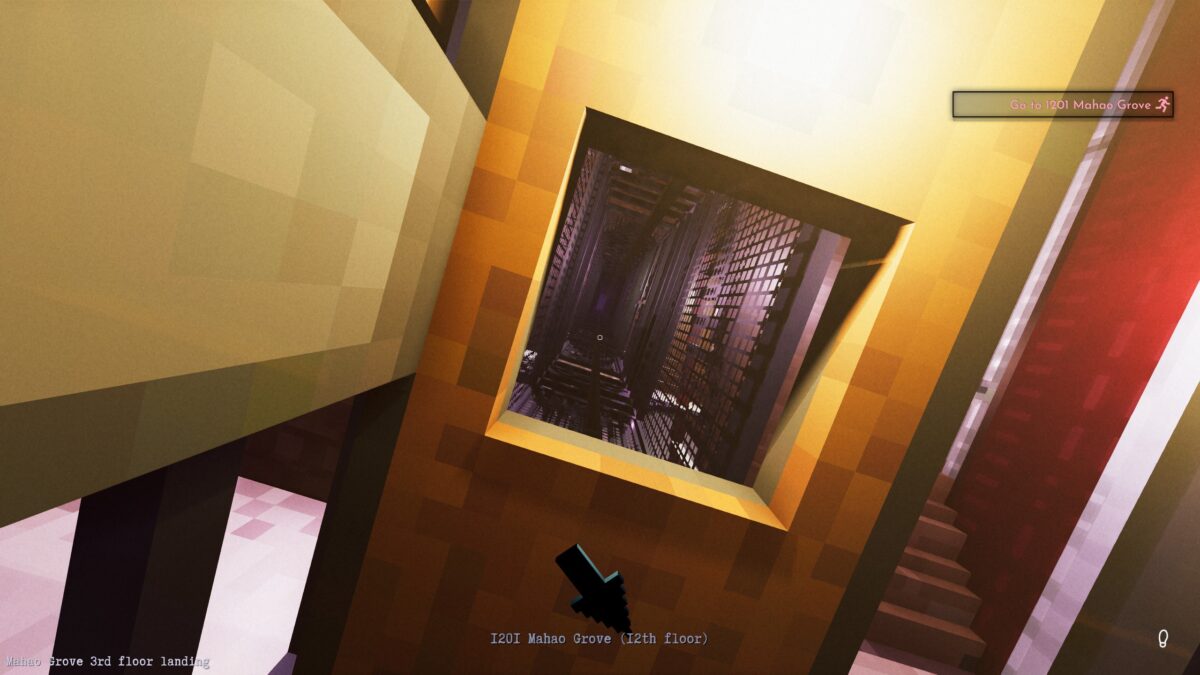
You’ll likely spend a lot of time crawling through vents. Philip Marlowe never had this problem.
So went my nerve-jangling first case in Shadows of Doubt. It’s highly unlikely that your experience will be quite the same – and that’s because just about everything in the game is procedurally generated. From the name and placement of buildings, right down to the positioning of the smallest items, everything is random; even the killers you’re asked to apprehend will change each time a new city is generated. (Though like Minecraft, you can save and share the seed number if you want others to play in the same space.)
I’ve since spent hours roaming Neo Swindon, a benighted metropolis of the late 20th century dominated by a despotic corporation called Starch Kola. In open-world terms, it isn’t a vast map, amounting to a few square blocks, but the sheer density of it is borderline overwhelming. In Abena’s flat alone there are drawers to hunt through and bins to search. Book shelves have individual volumes you can pull out and inspect. You’ll commonly find a discarded cup here or a crumpled piece of paper there, and it’s up to you to figure out whether any of them are pertinent to your murder case or whether they’re just regular detritus.
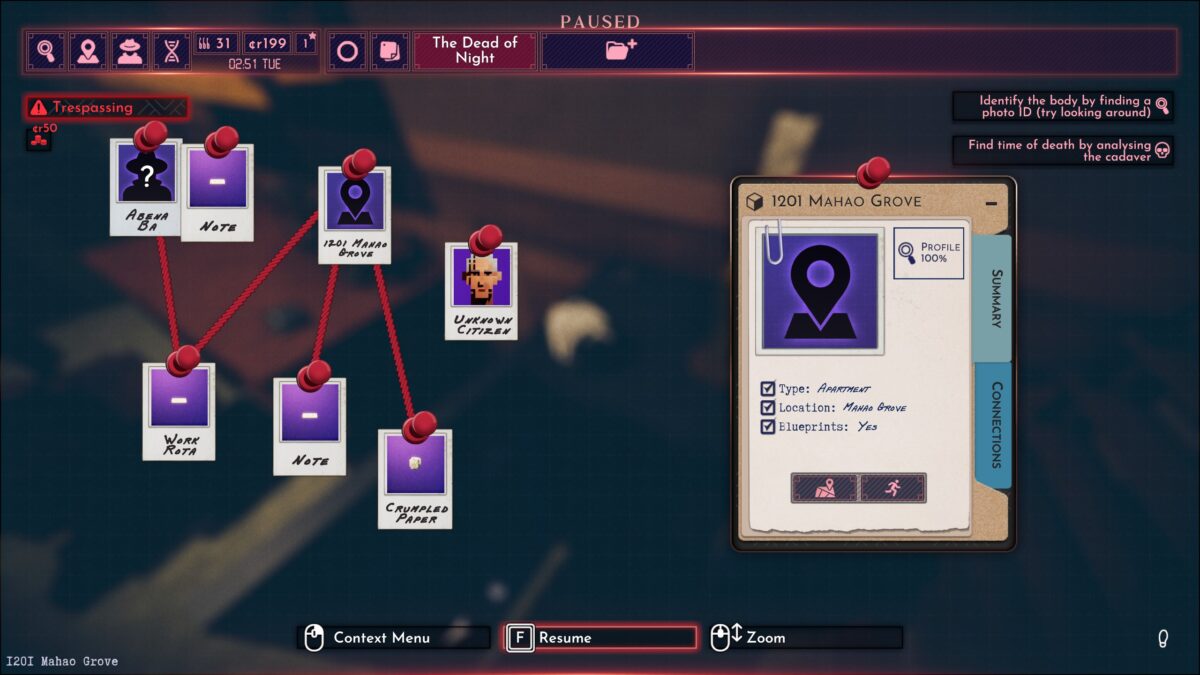
Your investigation board is a vital tool, and needs careful management to avoid it getting too cluttered with clues.
Shadows of Doubt lets you keep track of all your victims, suspects and clues with a neat investigation board, on which you can pin the clues you’ve found and even connect them with bits of coloured string. Even then, filtering and arranging these clues takes time and thought; if you work on a rookie assumption that everything you find in, say, a victim’s apartment is a clue, then you’ll wind up with a thicket of information that may or may not be useful.
Nor is hunting for clues the only thing you’ll do in Shadows of Doubt’s voxel city. As a private detective, you’ll often have to access places intended to be off-limits, which require you to cut off the power to security cameras or engage in a bit of stealth. There’s also combat, which is liable to leave you injured and in need of bandages or other medical supplies.
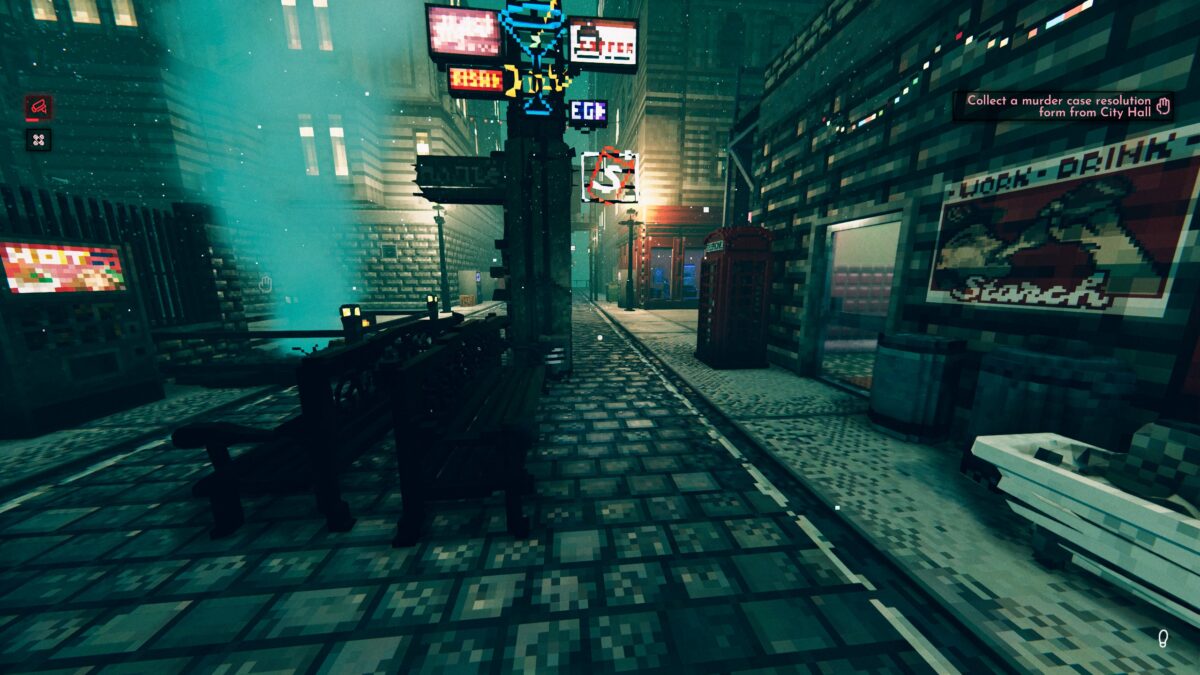
Shadows of a Doubt’s voxel cities, with their biting cold and societal malaise, are strikingly atmospheric.
There’s a broader plot, too, that sees you turfed out of your apartment and desperate to make ends meet. Your ultimate goal is to build up the social and financial capital you’ll need to retire – a goal you can achieve by solving crimes and also carrying out other odd jobs dotted around the city.
The sheer range of things to do in Shadows of Doubt – and, even with the handy tutorial screens, lack of hand-holding – gives it the feel of a 1990s PC game like Deus Ex. That’s intended as a compliment, but may sound off-putting depending on your tastes.
Make no mistake, Shadows of Doubt can be brutally, frustratingly harsh; even assuming you’ve got your detective chops together, your investigations can still come unstuck quite abruptly if you’re caught trespassing or run into some law enforcers. Serious injury doesn’t end the game, but will land you in hospital, slowing down your investigations and landing you with a hefty medical bill. It’s therefore possible to amass a decent amount of money from your detective work, only to watch it dwindle again through fines and healthcare costs.
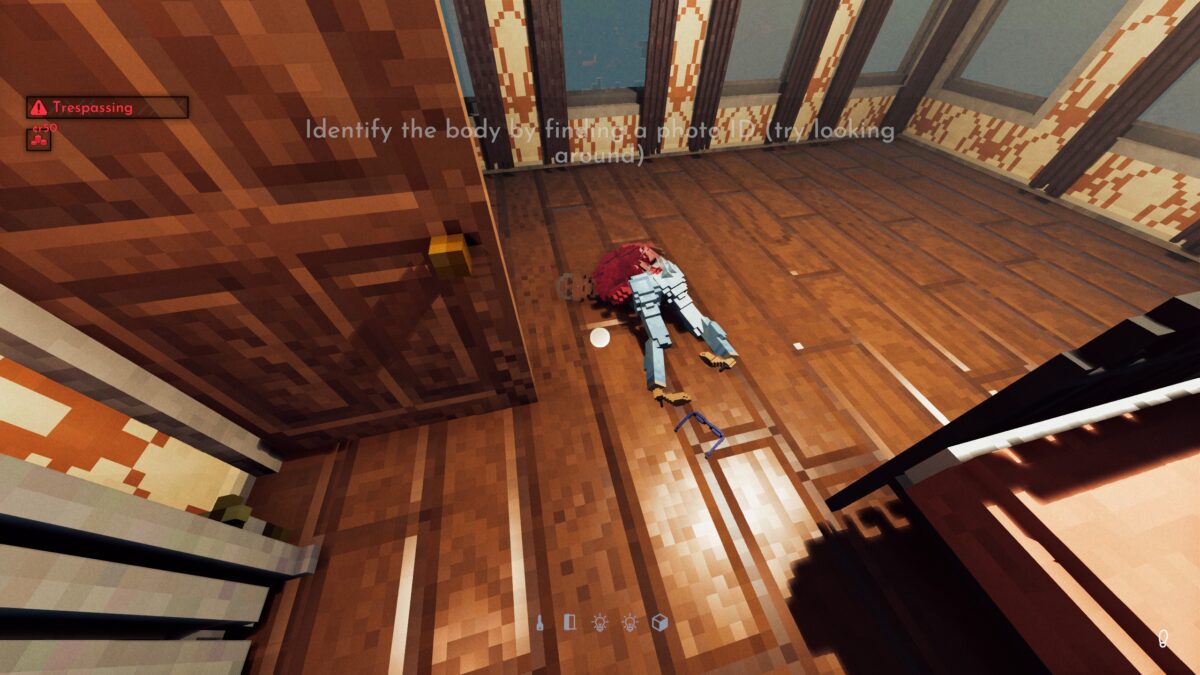
A gruesome discovery. Time to start hunting around for finger prints and other clues.
Tune into that harshness, though, and Shadows of Doubt is a rewarding, engrossing experience. There’s a real thrill to sneaking into a building, finding some useful clue, and then narrowly evading capture (by crawling through a vent, say, as I did). The notion that you’re following a unique trail of clues that lead to the killer – and that the killer could literally be any character walking around the city – provides a fascination that more traditional, scripted detective games simply can’t.
Shadows of Doubt has only just entered Early Access, though, so there are some rough edges, both technically and mechanically. The UI doesn’t detect whether your mouse is set up for left- or right-handed use, which means it’ll constantly tell you to press the wrong button if you happen to be left-handed, as I am. Controller support isn’t active at the time of writing, either, though it’ll apparently be added around the time of launch. There were a few occasional performance issues, not least a stuttering framerate, even on a mid-to-high-end PC.
Even at this stage, however, Shadows of a Doubt remains a uniquely immersive detective sim. Like any decent mystery thriller, the details are key: perhaps my favourite element is the resolution form. Once you think you’ve figured out who a perpetrator is, you can put down their name, address, and other pertinent case details down on the form; the kicker is, you won’t know for sure whether you’ve pointed the finger at the right suspect until you file your paperwork at the city hall.
Despite my flailing attempts at playing detective earlier in the game, I did eventually manage to track down a suspect, search their house, and find some scraps of evidence that placed them at the scene of the crime. Heart aflutter, I filled out my report and filed it, wondering whether my hunch was correct. A few agonising seconds later, I got a response: I had indeed tracked down the killer.
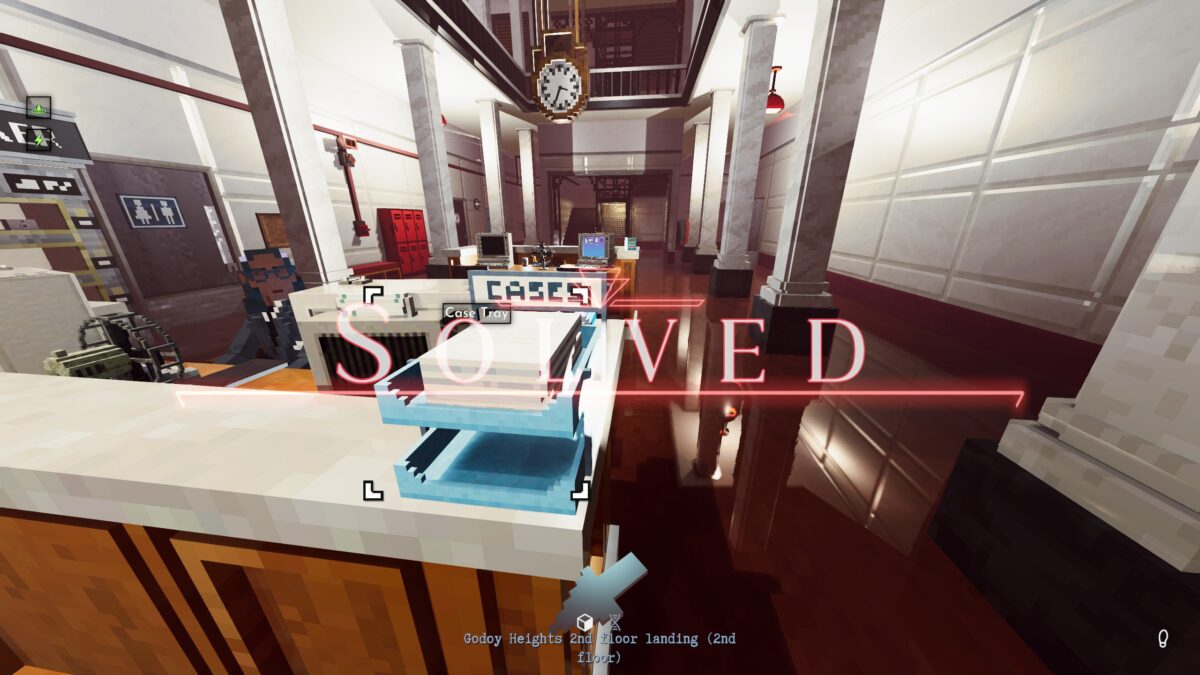
YES. YESS. YEEEEESSSS. Ahem.
The elation I felt in that moment is hard to describe. Maybe I’m not quite so bad at this detective lark, after all…
Shadows of Doubt is available now on Steam Early Access.








